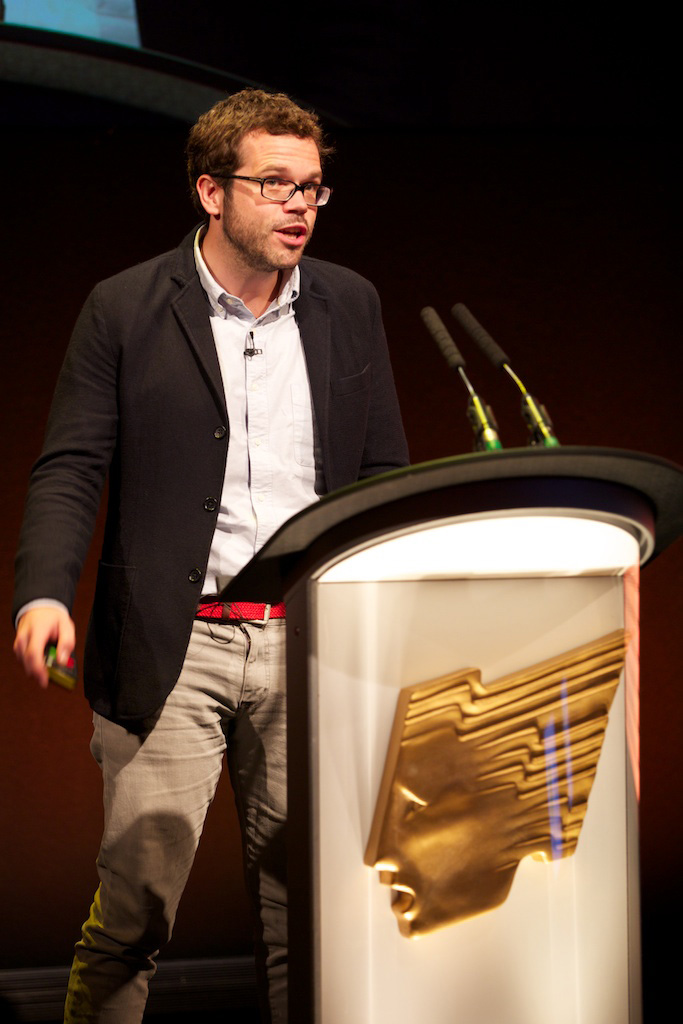 Introducing the RTS Cambridge Convention, Channel 4 CEO David Abraham said 2013 could prove to be a critical time for British television. He gave three reasons:
Introducing the RTS Cambridge Convention, Channel 4 CEO David Abraham said 2013 could prove to be a critical time for British television. He gave three reasons:
- Connected TV is now a reality;
- The independent production sector is maturing (and now worth more than £2.5bn a year);
- The UK faces “a period of legislative potential”.
The first Cambridge session combined original research by Deloitte into the television value chain, interviews with industry pundits, audience feedback – and a torture chamber run by Charlie Brooker.
Brooker’s entertaining Guantanamo-themed video clips addressed the big questions of whose side you are on – and who you can trust. Aggressively biting the hand that feeds him, Brooker suggested that most indies would rather be waterboarded than work with Channel 4.
Expanding on the conference theme of Whose Side Are You On? Abraham asked audience members to choose the sector that best defined them: Producer, Platform or Broadcaster – or Other. They dutifully wielded their complimentary iPads to reveal they were, respectively, 20%, 11%, 32% and 33% (and 57% of them gave their main reason for attending Cambridge as “hearing new ideas from world-class speakers”).
As for which sector would be making the most money in 10 years’ time, 64% said Platforms. Yet when quizzed about which sector would do the most to protect programme diversity and quality, producers said producers and broadcasters said broadcasters (among the broadcasters, 90% claimed they would be the most effective guardians…).
Asked whether TV is facing a process of evolution over the next 10 years or a revolution – or even a total transformation – 70% of attendees voted for evolution. No one predicted transformation.
This view was backed up by the Deloitte research, which emphasised the remarkable resilience of linear television and the industry’s major revenue streams. Matthew Guest, director, consulting at Deloitte, said: “All the changes have tended to reinforce broadcast television’s dominance.”
However, he also conceded that while we spend a quarter of our waking lives watching television and the sector has maintained its revenues, it only accounts for 1% of GDP.
Sean McGuire, managing director of Oliver & Ohlbaum, concluded that despite the UK indie sector being “the envy of the world”, platforms would be the big winners. “They will own the consumer relationship and collect the increasingly valuable data,” he argued.
Abraham revealed that many contributors had told him privately while planning Cambridge that the dichotomy between suits and creatives in the television industry is increasingly redundant.
He also announced that Channel 4’s new Growth Fund will take minority stakes in fledgling companies.
The session was chaired by Jon Snow, Channel 4 News, and produced by Deborah Ward. David Abraham is chair of the Convention Planning Committee and CEO of Channel 4.
Report by Gordon Jamieson. Photo by Paul Hampartsoumian.

